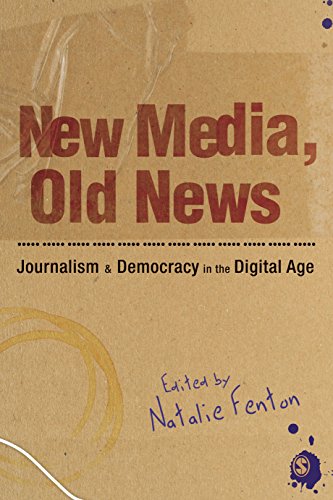New Media, Old News Journalism and Democracy in the Digital Age
Natalie Fenton is a Professor of Media and Communications and Co-Head of the Department of Media, Communications and Cultural Studies at Goldsmiths, University of London. She is also Co-Director of the Centre for the Study of Global Media and Democracy. She has published widely on issues relating to civil society, radical politics, digital media, news and journalism and is particularly interested in issues of political transformation, radical media reform and re-imagining democracy. She was Vice-chair of the Board of Directors of the campaign group Hacked Off for 7 years and is currently Chair of the UK Media Reform Coalition. Her books include New Media: Old News: Journalism and Democracy in the Digital Age (Sage, 2010); Misunderstanding the Internet co-authored with James Curran and Des Freedman (Routledge, 2016); Digital, Political, Radical (2016, Polity); Media, Democracy and Social Change: Re-imagining Political Communications co-authored with Des Freedman, Gholam Khiabany and Aeron Davis (Sage, 2020) and The Media Manifesto co-authored with Lina Des Freedman and Justin Schlosberg and Lina Dencik (Polity, 2020). ... Read more Read less
Have new communications technologies revitalized the public sphere, or become the commercial tool for an increasingly un-public, undemocratic news media? Are changing journalistic practices damaging the nature of news, or are new media allowing journalists to do more journalism and to engage the public more effectively?With massive changes in the media environment and its technologies, interrogating the nature of news journalism is one of the most urgent tasks we face in defining the public interest today. The implications are serious, not just for the future of the news, but also for the practice of democracy.In a thorough empirical investigation of journalistic practices in different news contexts, New Media, Old News explores how technological, economic, and social changes have reconfigured news journalism, and the consequences of these transformations for a vibrant democracy in our digital age. The result is a piercing examination of why understanding news journalism matters now more than ever. It is essential reading for students and scholars of journalism and new media. ... Read more Read less











